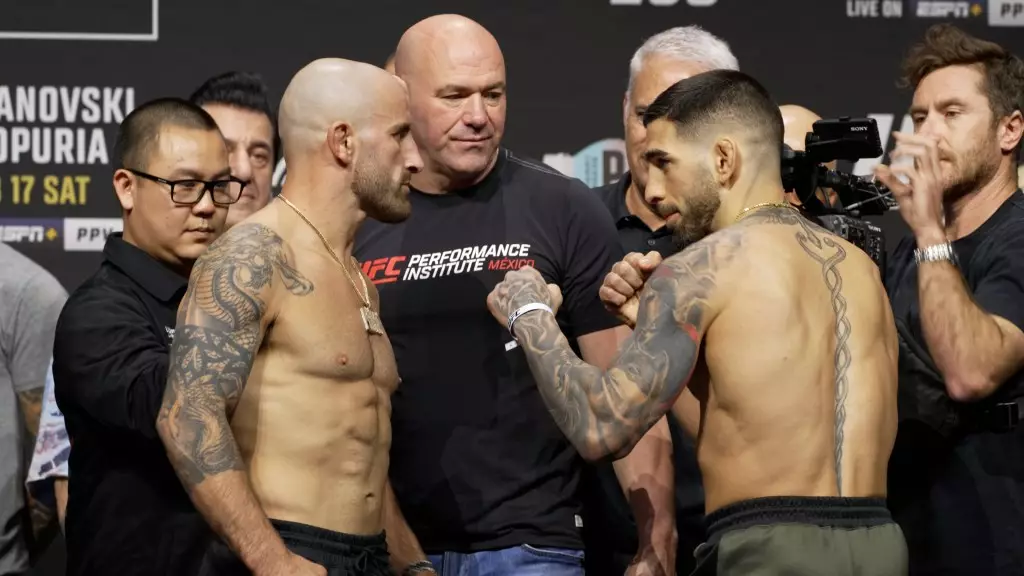The UFC featherweight division recently witnessed a seismic shift following UFC 308, an event that not only delivered an explosive main event between Ilia Topuria and Max Holloway, but also reignited the conversation surrounding Alexander Volkanovski, the former champion. Dana White’s reflections post-fight underscored Volkanovski’s importance to the promotion, raising an intriguing question: can the UFC afford to overlook such a pivotal figure in this highly competitive weight class?
Volkanovski, with a professional record of 26 wins and 4 losses, has long been revered as one of the elite fighters in the sport. His track record in the octagon, including a reign as champion that showcased his resilience and skill, positions him uniquely within the featherweight narrative. The challenges he currently faces—a knockout loss in a lightweight title bout against Islam Makhachev and a recent loss to Topuria—create a critical juncture for his career.
Ilia Topuria’s remarkable knockout victory over Holloway at UFC 308 not only solidified his status as a title contender but also complicated the landscape for Volkanovski. White’s acknowledgment of Volkanovski’s past contributions to the UFC casts him as a potential front-runner for the next title shot, despite the setbacks he has encountered. Topuria’s undefeated streak, now standing at 16-0, adds an exhilarating layer of drama to the prospects of a future clash against Volkanovski.
White’s comments highlighted an essential aspect of fight promotion—the delicate balance of meritocracy and legacy. While newer contenders like Diego Lopes are making their names known, the UFC’s inclination toward loyalty and history cannot be understated. Volkanovski’s willingness to step in during pivotal moments for the UFC has cemented his status as a company favorite, even amidst his recent struggles.
One of the critical takeaways from White’s post-fight comments is the unspoken rule of loyalty within the UFC. Fighters who have consistently delivered for the promotion—filling fights on short notice, facing tough opponents, and maintaining professionalism under pressure—tend to receive preferential treatment. Volkanovski embodies this ethos; his readiness to compete when the promotion needs him has built a reservoir of goodwill that the UFC appears reluctant to dismiss.
Interestingly, this raises the question of meritocracy in professional fighting. Should legacy and service to the organization outweigh recent performance on the scales of opportunity? For Volkanovski, the answer appears to be yes. White’s assertion that no one is likely to view a bout with Volkanovski as unreasonable suggests a belief that the political dynamics within the sport sometimes eclipse pure competitive merit.
For Alexander Volkanovski, the road ahead is rife with complexities, yet it is underpinned by a profound belief in his capability to reclaim his standing. Whether he challenges Topuria directly or takes another fight to rebuild momentum will likely determine his trajectory in the division.
While Topuria’s rise presents a formidable challenge, Volkanovski’s past fortitude and contributions to the UFC ecosystem ensure that he remains a central figure in shaping the future of the featherweight division. As fans eagerly await the next chapter, one thing is clear: the octagon continues to be a landscape of evolving stories, where loyalty and legacy often shape the narrative as much as raw talent and performance do.

